第03次作业-栈和队列
Posted .sugar
tags:
篇首语:本文由小常识网(cha138.com)小编为大家整理,主要介绍了第03次作业-栈和队列相关的知识,希望对你有一定的参考价值。
可爱的小天才,由于放假了,导致作业没做,希望多给点分啊,爱你的小学弟。

2.PTA实验作业
1.1 题目1:7-1 jmu-字符串是否对称
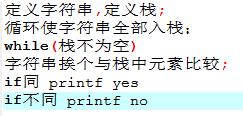
1.3 代码截图
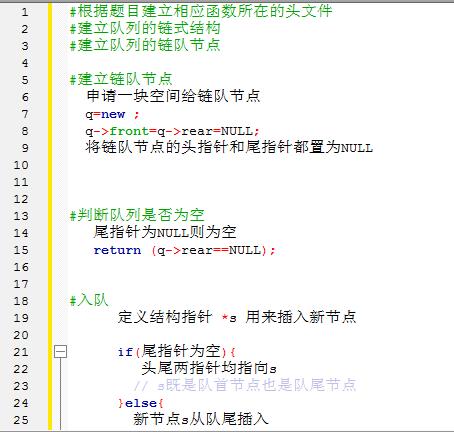
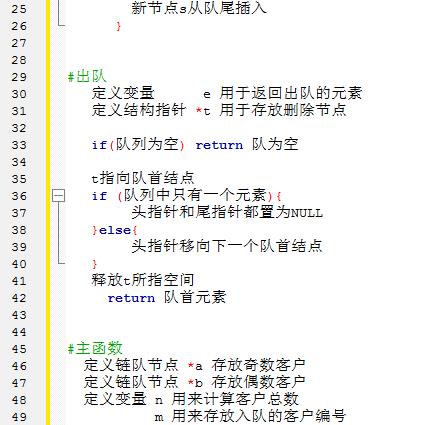
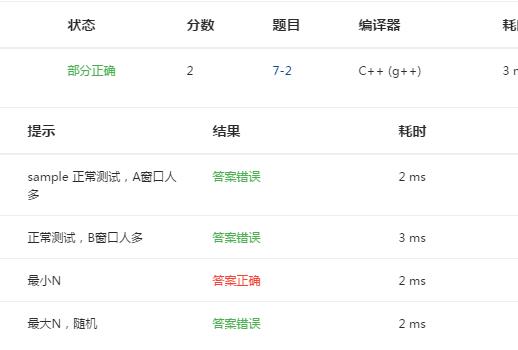
7.2 代码截图
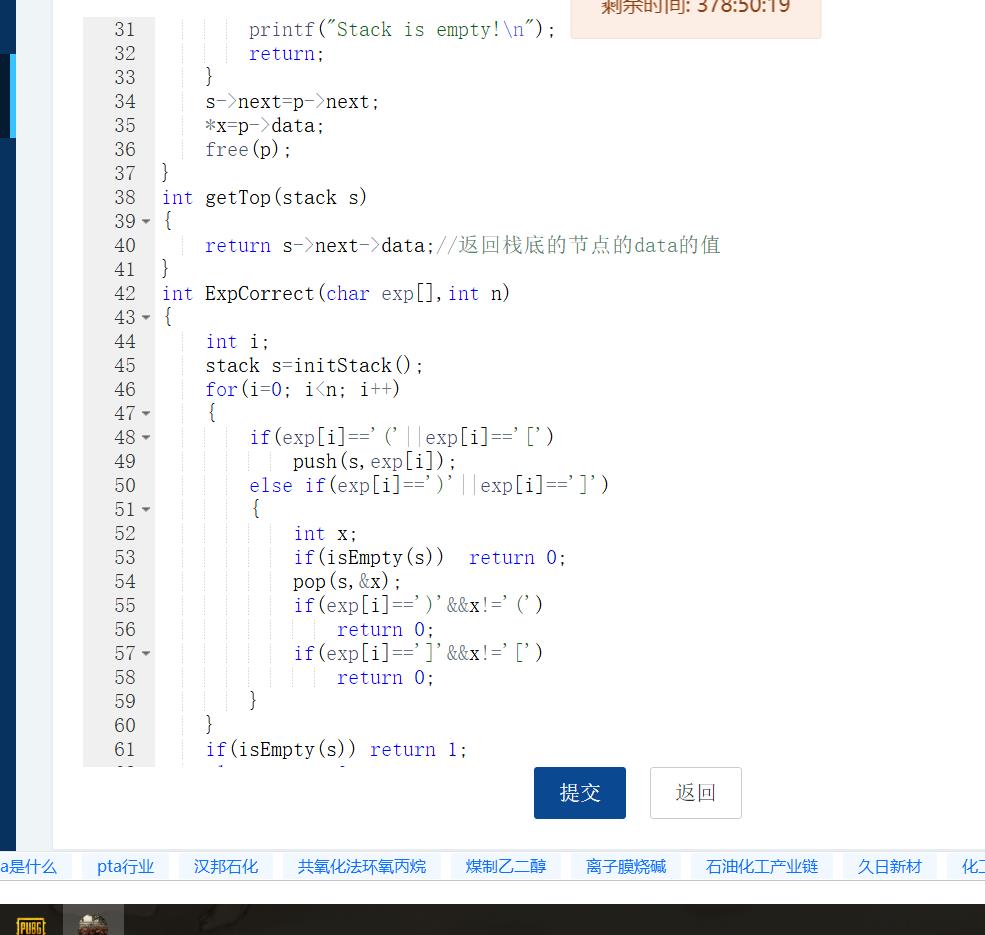
7.1
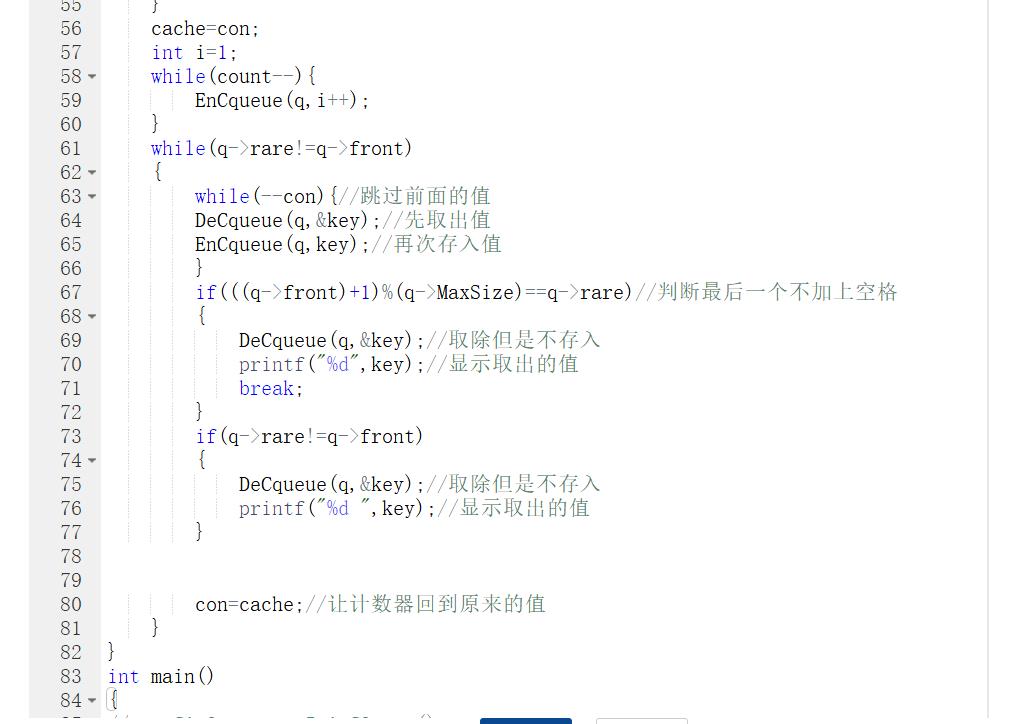


总分 155 也就是两分
- * list.h
- * Created on: 2017年9月5日
- * Author: jobschu
- */
- #ifndef __LIST_H__
- #define __LIST_H__
- struct list {
- struct list *next;
- struct list *prev;
- };
- struct list_x {
- struct list *next;
- struct list *prev;
- };
- /*init list*/
- void list_init(struct list *list);
- /*free list*/
- int list_empty(struct list *list);
- /*insert before link */
- void list_insert(struct list *link, struct list *new_link);
- /*insert before link */
- void list_append(struct list *list, struct list *new_link);
- /*insert after link*/
- void list_prepend(struct list *list, struct list *new_link);
- /*delete this link*/
- void list_remove(struct list *link);
- #define list_entry(link, type, member) \\
- ((type *)((char *)(link)-(unsigned long)(&((type *)0)->member)))
- /*get list head*/
- #define list_head(list, type, member) \\
- list_entry((list)->next, type, member)
- #define list_tail(list, type, member) \\
- list_entry((list)->prev, type, member)
- #define list_next(elm, member) \\
- list_entry((elm)->member.next, typeof(*elm), member)
- #define list_for_each_entry(pos, list, member) \\
- for (pos = list_head(list, typeof(*pos), member); \\
- &pos->member != (list); \\
- pos = list_next(pos, member))
- #endif
msg.h
- /*
- * msg.h
- * Created on: 2017年9月5日
- * Author: jobschu
- */
- #ifndef __MSG_H__
- #define __MSG_H__
- #include "list.h"
- #define TID_MSG 0
- struct msg {
- struct list nodeHead;/*消息队列的头*/
- unsigned int type;
- unsigned int len;
- //unsigned int lock;
- void *pdata;
- };
- typedef struct msg msg_t;
- typedef struct msg * pMsg_t;
- /*新建消息资源*/
- pMsg_t msg_new(unsigned int type,unsigned char *data,int len);
- /*消息队列在取得消息数据后,必须释放资源*/
- void msg_free(pMsg_t pMsg);
- #endif
msgQueue.h
- /*
- * msgQueue.h
- * Created on: 2017年9月5日
- * Author: jobschu
- */
- #ifndef __MSG_QUEUE_H__
- #define __MSG_QUEUE_H__
- struct msgQueue {
- struct list queueHead; /*消息队列链表头*/
- unsigned int length; /*消息队列长度*/
- unsigned char lock; /*消息队列锁,防止在多线程里的互斥操作*/
- };
- typedef struct msgQueue msgQueue_t;
- typedef struct msgQueue * pMsgQueue_t;
- /*创建消息队列 成功返回消息队列handle 失败返回NULL*/
- pMsgQueue_t msgQueue_create(void);
- /*从消息队列中获悉消息*/
- pMsg_t msgQueue_getMsg(pMsgQueue_t q);
- /*将消息添加到队列尾部*/
- int msgQueue_putMsg(pMsgQueue_t q,pMsg_t m);
- /*判断消息队列是否为空 为空返回1 否则返回0*/
- int msgQueue_isEmpty(pMsgQueue_t q);
- /*清除消息队列*/
- int msgQueue_delete(pMsgQueue_t q);
- #endif
文件main.c
- /*
- * main.c
- * Created on: 2017年9月5日
- * Author: jobschu
- */
- #include <stdio.h>
- #include <stdlib.h>
- #include <sys/ioctl.h>
- #include <sys/types.h>
- #include <sys/stat.h>
- #include <errno.h>
- #include <fcntl.h>
- #include <string.h>
- #include <pthread.h>
- #include <unistd.h>
- #include <signal.h>
- #include "msg.h"
- #include "msgQueue.h"
- static pMsgQueue_t youQueue;
- static pMsgQueue_t myQueue;
- static pMsg_t myMsg;
- static unsigned char buff[][10]={
- "1111111111","2222222222","3333333333","4444444444",
- "5555555555","6666666666","7777777777","8888888888"
- };
- /*测试一实现单个消息队列发送 单个消息队列接收测试*/
- int test_0(void){
- int num = 0,i=0;
- printf("only for test!\\n");
- /*创建消息队列*/
- myQueue = msgQueue_create();
- if(myQueue == NULL){
- printf("new msg queue err!\\n");
- return -1;
- }
- printf("add msg to queue...\\n");
- /*获取要模拟发送的消息长度*/
- num = sizeof(buff)/sizeof(buff[0]);
- for(i=0;i<num;i++){
- /*新建消息*/
- myMsg = msg_new(0,buff[i],sizeof(buff[i]));
- /*将新建的消息推送到消息队列*/
- if(msgQueue_putMsg(myQueue,myMsg)){
- printf("put Msg err:[%d]\\n",i);
- }
- //printf("add msg:%s to queue\\n",buff[i]);
- }
- printf("get msg from queue...\\n");
- while(!msgQueue_isEmpty(myQueue)){
- myMsg = msgQueue_getMsg(myQueue);
- if(myMsg == NULL||myMsg->len <=0 ||myMsg->pdata == NULL){
- continue;
- }
- printf("get msg:len:[%d],data:%s\\n",myMsg->len,myMsg->pdata);
- /*将获取到的消息使用后释放资源*/
- msg_free(myMsg);
- }
- printf("main end!\\n");
- /*删除消息队列*/
- msgQueue_delete(myQueue);
- return 0;
- }
- /*测试方法二 通过主线程发送消息到消息队列,线程用来异步接收消息处理消息*/
- static void *thread(void *str)
- {
- int i = 0;
- unsigned char RecvBuff[256];
- unsigned int RecvLen = 0;
- while(1)
- {
- /*获取消息队列中的消息*/
- if(!msgQueue_isEmpty(myQueue)){
- myMsg = msgQueue_getMsg(myQueue);
- if((myMsg != NULL) && (myMsg->len > 0) && (myMsg->pdata != NULL)){
- printf("get msg:len:[%d],data:%s\\n",myMsg->len,myMsg->pdata);
- /*释放掉消息占有的空间*/
- msg_free(myMsg);
- }
- }
- usleep(100000);//100ms
- }
- }
- int test_1(void){
- int num = 0,i=0;
- pthread_t pth;
- printf("start the man process!\\n");
- /*创建消息队列*/
- myQueue = msgQueue_create();
- if(myQueue == NULL){
- printf("new msg queue err!\\n");
- return -1;
- }
- printf("create new pthread!\\n");
- /*创建接收消息队列的线程*/
- pthread_create(&pth,NULL,thread,NULL);
- printf("add msg to queue...\\n");
- /*获取要模拟发送的消息长度*/
- num = sizeof(buff)/sizeof(buff[0]);
- for(i=0;i<num;i++){
- /*新建消息*/
- myMsg = msg_new(0,buff[i],sizeof(buff[i]));
- /*将新建的消息推送到消息队列*/
- if(msgQueue_putMsg(myQueue,myMsg)){
- printf("put Msg err:[%d]\\n",i);
- }
- usleep(3000000);//1000ms=1s
- }
- }
- /*创建两个并行的消息队列,交叉利用测试功能*/
- int test_2(void){
- int num = 0,i=0;
- printf("only for test!\\n");
- /*创建消息队列*/
- myQueue = msgQueue_create();
- if(myQueue == NULL){
- printf("new msg queue err!\\n");
- return -1;
- }
- /*创建消息队列*/
- youQueue = msgQueue_create();
- if(youQueue == NULL){
- printf("new msg queue err!\\n");
- return -1;
- }
- printf("add msg to myQueue...\\n");
- /*获取要模拟发送的消息长度*/
- num = sizeof(buff)/sizeof(buff[0]);
- for(i=0;i<num/2;i++){
- /*新建消息*/
- myMsg = msg_new(0,buff[i],sizeof(buff[i]));
- /*将新建的消息推送到消息队列*/
- if(msgQueue_putMsg(myQueue,myMsg)){
- printf("put Msg err:[%d]\\n",i);
- }
- }
- printf("add msg to youQueue...\\n");
- for(i=num/2;i<num;i++){
- /*新建消息*/
- myMsg = msg_new(0,buff[i],sizeof(buff[i]));
- /*将新建的消息推送到消息队列*/
- if(msgQueue_putMsg(youQueue,myMsg)){
- printf("put Msg err:[%d]\\n",i);
- }
- }
- printf("get youQueue from queue...\\n");
- /*将消息从消息队列中读取出来*/
- while(!msgQueue_isEmpty(youQueue)){
- myMsg = msgQueue_getMsg(youQueue);
- if(myMsg == NULL||myMsg->len <=0 ||myMsg->pdata == NULL){
- continue;
- }
- printf("get youQueue:len:[%d],data:%s\\n",myMsg->len,myMsg->pdata);
- msg_free(myMsg);
- }
- printf("get myQueue from queue...\\n");
- /*将消息从消息队列中读取出来*/
- while(!msgQueue_isEmpty(myQueue)){
- myMsg = msgQueue_getMsg(myQueue);
- if(myMsg == NULL||myMsg->len <=0 ||myMsg->pdata == NULL){
- continue;
- }
- printf("get myQueue:len:[%d],data:%s\\n",myMsg->len,myMsg->pdata);
- msg_free(myMsg);
- }
- printf("main end!\\n");
- /*删除消息队列*/
- msgQueue_delete(myQueue);
- msgQueue_delete(youQueue);
- return 0;
- }
- int main(int argc,char **argv)
- {
- //return test_0();
- //return test_1();
- return test_2();
- }
以上是关于第03次作业-栈和队列的主要内容,如果未能解决你的问题,请参考以下文章